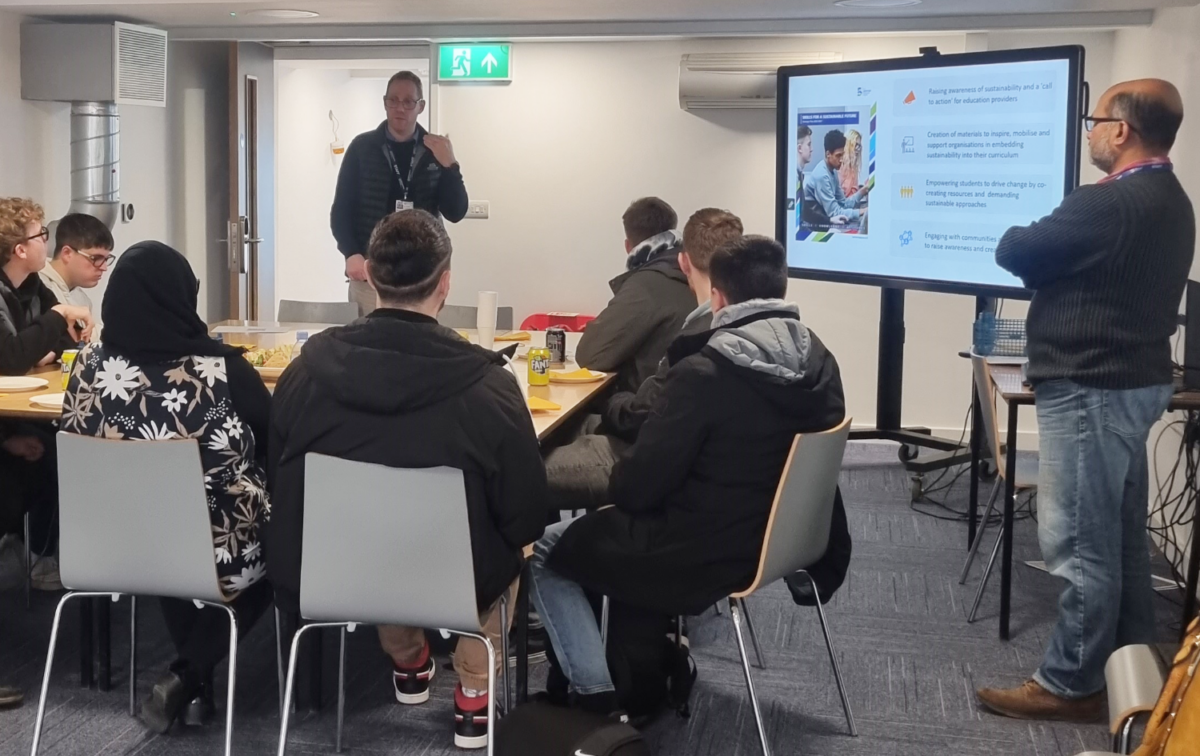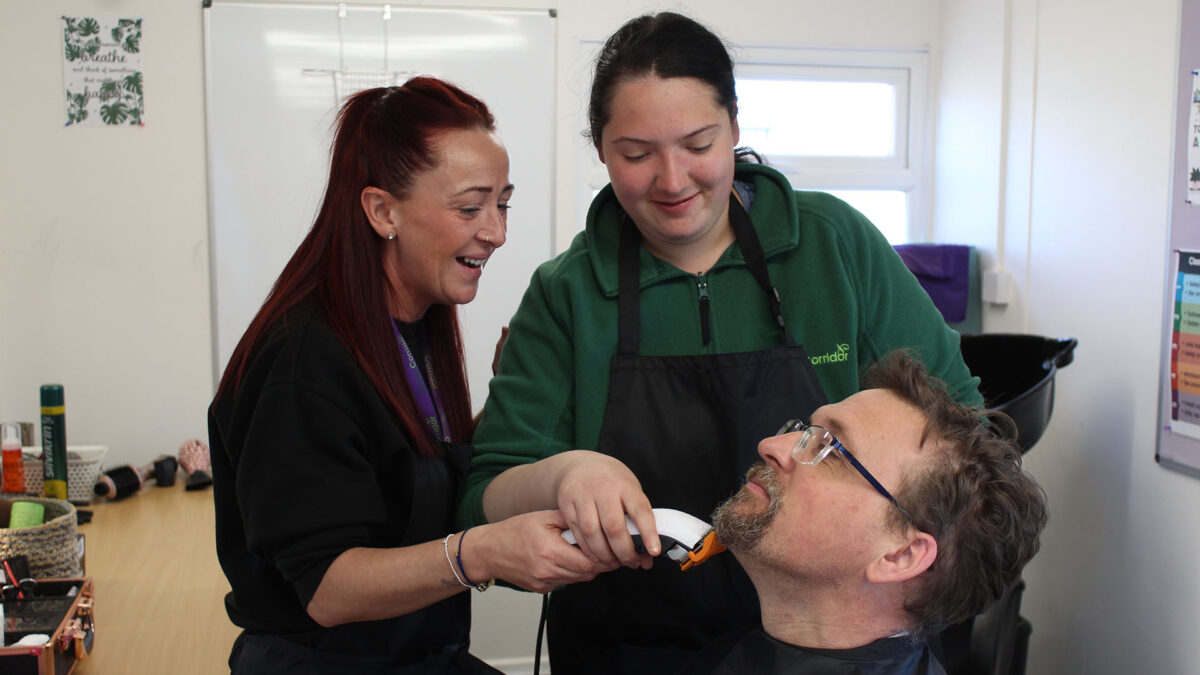Ofsted’s Career Guidance Review: A Missed Opportunity

Kerry Boffey of FIN argues Ofsted’s CIAG review fell short, for example in addressing the broader context of career guidance for employers and established employees.
Ofsted’s recent “independent review of careers guidance in schools and further education and skills providers” was a timely assessment of whether guidance, or Careers Information and Guidance (CIAG), has improved since the government strengthened its enforcement of the Baker Clause.
CIAG, once a minor footnote in inspection reports, has now taken centre stage. Analysis by the Fellowship of Inspection Nominees (FIN) reveals that between May and October 2023, 88 out of 225 inspections of all provider types identified room for improvement in the CIAG offered to learners – the most significant area for improvement.
Given the review’s length, it’s surprising that it overlooked significant areas of interest.
Oversight of established career individuals
The report focuses primarily on early-career learners and those seeking initial career guidance. It neglects the fact that many further education and skills programme participants already have established careers and seek career development or changes. These individuals require tailored guidance that may include upskilling, transitioning to new roles within their field, or making lateral career moves.
Limited guidance for employers
The review’s oversight fails to adequately support employers who want to offer career advice to their employees, particularly apprentices, without encouraging them to leave their current positions. Employers often invest heavily in workforce training and may prefer to facilitate internal career growth rather than losing employees.
In the case of apprenticeship levy-paying employers using external providers, providers can spend months or even years building relationships with employers, only to be expected to provide wholly impartial career guidance to the employer’s apprentices which may not be in the employer’s interests or providing a return on the employer’s investment in the training.
In an April 2023 inspection report for a police force, Ofsted stated an area for improvement as: “Provide apprentices with sufficient careers information, advice, and guidance about opportunities and career routes outside the police force”. This comment was inappropriate for apprentices committed to a police service career as a vocation. Only recently have some inspection reports acknowledged how unrealistic such expectations are.
Related to this is Ofsted’s failure to address the challenge of sharing guidance with higher-level apprentices or how employer providers should offer advice. While the review acknowledges the challenge for providers to balance impartial guidance with maintaining good relationships with current employers, it doesn’t delve into effective strategies or best practices. A deeper understanding of this delicate balance would be beneficial.
Continuous learning and development
Despite this omission, it’s encouraging to see Ofsted recognise the importance of continuous learning and development for individuals with established careers. In FIN’s view, career advice should extend beyond initial job placement to include strategies for long-term career growth and adaptability in a rapidly changing job market.
This means Ofsted should address how advice can be given to individuals already in senior roles. Tracking the career progression of these individuals within their organisations or in response to new opportunities is crucial for measuring the effectiveness of career guidance. We should take time to reflect on a colleague’s progress to date and celebrate achievements rather than pushing for constant change.
Don’t forget other options
The review briefly mentions that guidance for apprentices interested in self-employment is an area for development. More credit should be given to providers who support learners exploring entrepreneurship and self-employment as viable career options.
Is it that perhaps too many inspectors have college sector backgrounds and limited experience with apprenticeships and employer needs? This leads to generic statements that could apply to almost any provider when what’s needed is a better understanding of the CIAG required for specific apprenticeships or levels and employers.
The proportion of learners from ‘outstanding’ sixth form colleges progressing to apprenticeships is likely to be tiny. Yet we seem content that career advice in these environments can be far from impartial, but the institution remains ‘outstanding’. At the same time, an independent provider providing more detailed and appropriate advice may find its efforts deemed an area for improvement. Many schools still only offer external provider access to lower-level pupils, believing that apprenticeships are not for high flyers.
Let’s remember that university, college, or an apprenticeship are not the only routes for signposting. At FIN we have shared with our members our approach to value all levels of career known as the ABC of careers: A = a job; B = better job; and C = career.
For some communities or families, a job is a significant step forward. Someone who finds a role in the service industry or manufacturing, who is reliable and hardworking, is invaluable to keeping the wheels of industry and commerce moving. Society has a range of job roles and we need reliable, honest, and hardworking people to feel valued, not undermined for not aspiring for a ‘better’ career. For example, a care worker could be signposted towards parallel careers such as recruitment agencies looking for care employees or a company supplying products used by care companies. Careers advice can be about widening choices and thinking differently.
Conclusion
Ofsted’s review fell short in addressing the broader context of career guidance, failing to adequately consider the needs of individuals with established careers and employers who seek to provide internal career advice while retaining their employees. Without a comprehensive understanding of these crucial aspects, Ofsted’s ability to fairly evaluate and address inconsistencies in its inspections of careers guidance remains questionable.
By Kerry Boffey, Fellowship of Inspection Nominees (FIN)
FE News on the go…
Welcome to FE News on the go, the podcast that delivers exclusive articles from the world of further education straight to your ears.
We are experimenting with Artificial Intelligence to make our exclusive articles even more accessible while also automating the process for our team of project managers.
In each episode, our thought leaders and sector influencers will delve into the most pressing issues facing the FE sector, offering their insights and analysis on the latest news, trends, and developments.
FIN’s support for providers on CIAG
Recognising the growing significance of CIAG in inspections, FIN (Home – Fellowship of Inspection Nominees (fin-online.org.uk)) has implemented several initiatives to support providers:
- Free Discussion Groups: FIN facilitates discussion groups where members can share best practices and learn from each other’s experiences.
- Ofsted Expectations Resources: FIN provides readily accessible resources outlining Ofsted’s expectations for CIAG, ensuring providers stay informed and compliant.
- Sample Learner Questions: FIN offers sample questions to assess learners’ understanding and awareness of their career paths, enabling providers to deliver effective guidance and identify gaps in existing CIAG programs.
- Employability Behaviours Resources: FIN provides a comprehensive range of resources on developing employability behaviours at all levels, equipping learners with transferable skills that enhance their career prospects.
FIN remains committed to supporting providers in delivering high-quality CIAG that empowers individuals, regardless of their career stage, to make informed decisions and achieve their full potential.












Responses